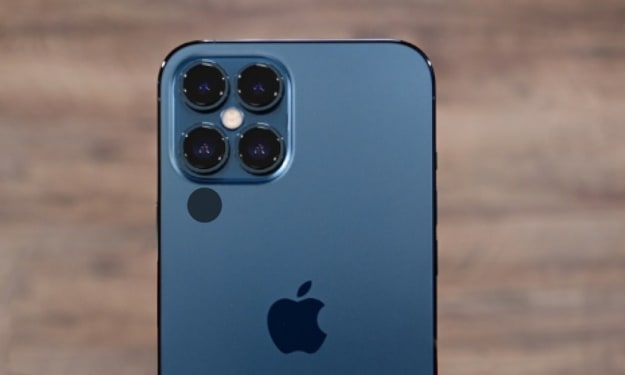M1 MacBook SSDs are dealing with a major issue — and it could slaughter your PC
There's something interesting going on with the capacity drives in Apple's most up to date MacBooks and Mac Mini.

The new M1 chip in Apple's most recent MacBooks offers incredible execution and battery life. It may not be so useful for your capacity drive, nonetheless.
On Twitter and a few different gatherings, clients of the most recent MacBook Air, MacBook Pro and Mac Mini models are revealing strong state-drive (SSD) wear rates far higher than anticipated. In the event that the figures are exact and the pattern proceeds, it could mean worryingly short life expectancies for Apple's most recent group of workstations.
MacBook Air with M1 audit: A figuring insurgency
Look at the best PCs we've tried
Besides: Stunning iPhone Fold video prods Apple's foldable future
SSD wear — the essentials
The dependability of SSDs diminishes after some time as the memory cells in the drive get utilized and reused, at last coming about in more slow reaction times and defiled information. That is the reason producers ensure their SSDs will work up to a particular number of all out bytes composed (TBW).
It's critical to take note of that SSDs don't in a split second bomb when they come to their warrantied TBW. It simply denotes a limit for when you're bound to begin seeing issues.
What's the issue?
Mac power clients have been checking the number of bytes their MacBooks' SSDs have composed by utilizing an application called Smart Monitoring Tools, by means of the macOS Terminal. This is a to some degree complex technique that requires downloading an outsider application, so we don't suggest you attempt it yourself except if you're an exceptionally sure client.
On account of the tried Macs found in these strings, one Mac Mini client professed to have composed 165TB of information in only two months of utilization. Contrasted with comparable retail SSDs from Toshiba (who supplies the SSDs inside the MacBooks), that is identical to 10% of its absolute warrantied TBW.
In principle, the SSDs in Apple's M1 MacBooks should ensure dependable use for around five years. However, this quick pace of utilization slices that solid life to under two years.
This 10% figure is by all accounts an exception. Most clients whining about this issue are revealing figures of 2-3% utilization, as seen on strings on the MacRumors gathering and the LinusTechTips discussion. That is as yet higher than you'd expect for a shiny new gadget, however.
To exacerbate the situation, this is an interior drive patched onto the mainboard of the Macs. It is extremely unlikely to supplant it without trading out a few different parts, making fixes significantly more costly than needed.
What's the reason?
Hector Martin, a Linux engineer for M1 Macs, said on Twitter that this issue could be because of macOS' trade record work, which utilizes the SSD as a virtual RAM augmentation for escalated errands. The trade record is a fundamental piece of Unix-determined working frameworks like macOS.
On the off chance that the Mac is depending on the SSD for additional cycles than anticipated, it could clarify why the SSD's utilization is by all accounts such a ton higher than anticipated, especially for models outfitted with the fundamental 8GB RAM as opposed to the discretionary 16GB RAM.
Similarly, the issue could be with the revealed number. This could be brought about by a bug some place inside macOS Big Sur which is misinterpreting the SSD utilization. There's likewise the topic of the exactness of the outsider device these clients are depending on to compute the compose rate, as it very well may be confounding sure qualities.
On the off chance that you own one of these M1 MacBooks, you probably don't have to stress however. Just few clients, the ones who are saving the most information, appear to be in danger of this idiosyncrasy of programming really depleting their SSDs. That is expecting the Macs are truly composing this much information onto the SSDs.
Apple's reaction
An informal assertion to AppleInsider from a source inside Apple said: "While we're investigating the reports, realize that the SMART information being accounted for to the outsider utility is inaccurate, in accordance with wear on our SSDs".
With respect to an authority reaction, there isn't one yet. In the event that this issue keeps on being accounted for in any case, Apple will have no real option except to act before its juvenile line of PCs with uniquely planned processors gets a sad standing for instability. We can trust that the reports we've seen so far have a typical reason that isn't identified with the Macs' drives.






Comments
There are no comments for this story
Be the first to respond and start the conversation.